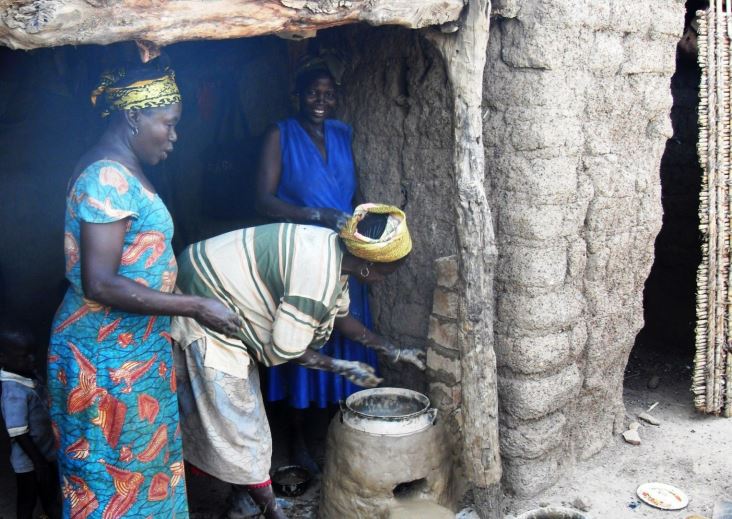
Informing a cook stoves programme in Ghana

Context
Household air pollution linked with exposure to open fires and polluting fuels cause an estimated 3 million premature deaths annually. In Ghana, indoor air pollution caused an estimated 14,458 premature deaths in 2016. According to the Ghana Clean Cooking Alliance, 80 per cent of Ghanaian households rely on solid fuels for household cooking.
Given the potential to improve lives, particularly the lives of women who collect biomass and inhale smoke while cooking, international NGO Plan Ghana and the government’s Ghana Council for Scientific and Industrial Research’s Institute of Industrial Research were keen to evaluate improved clay cook stoves. They sought evidence on how the new fuel-efficient stoves would be used and how their use would affect indoor air quality and health outcomes in the Tumu region in Ghana.
Between 2010 and 2011, 3ie supported researchers at the University of California, Berkeley’s Energy and Resources Group and the Haas School of Business to evaluate a pilot project to train women to build and use the improved cook stoves, as well as to study impacts on fuel use, time spent collecting fuel wood, carbon monoxide exposure and health symptoms associated with indoor air pollution.
Evidence
Cooking tests indicated that use of the new cook stoves reduced fuel use by 5 per cent, which was not statistically significant, irrespective of the estimation method (intent-to-treat or treatment-on-the-treated). There were no statistically distinguishable reductions in time for collecting fuel wood or in carbon monoxide exposure. In fact, cooking outdoors lowered carbon monoxide exposure for control households, whereas the treatment encouraged indoor cooking.
While self-reported health outcomes appeared to have improved, the evaluation found that families were using multiple stoves, including traditional stoves, simultaneously. The self-reported respiratory symptoms did not, however, correlate with self-reported new stove use, or with carbon monoxide measurement. The researchers suggest that positive health impact might be the result of experimenter demand and courtesy bias. At the end of eight months, the use of the new stoves had fallen by half.
Evidence impacts
Type of impact: Close a program
When evaluation or review findings inform decisions to stop implementation or planned scale-up of a program or its components.
This is one of 3ie’s seven types of evidence use. Impact types are based on what we find in the monitoring data for an evaluation or review. Due to the nature of evidence-informed decision-making and action, 3ie looks for verifiable contributions that our evidence makes, not attribution.
Read our complete evidence impact typology and verification approach here.
Close windowEvaluation findings prompted both the Institute of Industrial Research and Plan Ghana, the implementing partners, to continue to look for a more appropriate stove and not expand the Tumu cook stove pilot. As of 2020, cook stoves are no longer a part of Plan Ghana’s projects.
Suggested citation
International Initiative for Impact Evaluation (3ie), 2020. Informing a cook stoves programme in Ghana [online summary], Evidence Impact Summaries. New Delhi: 3ie.
Evidence impact summaries aim to demonstrate and encourage the use of evidence to inform programming and policymaking. These reflect the information available to 3ie at the time of posting. Since several factors influence policymaking, the summaries highlight contributions of evidence rather than endorsing a policy or decision or claiming that it can be attributed solely to evidence. If you have any suggestions or updates to improve this summary, please write to influence@3ieimpact.org